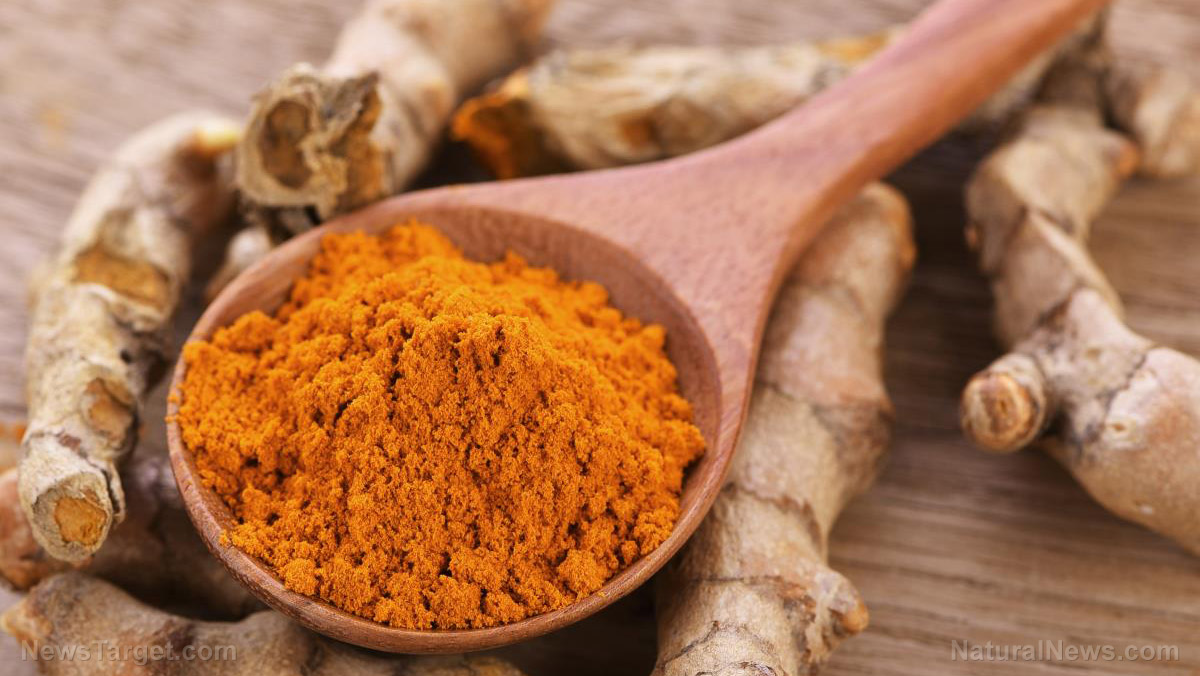Learn about brain health and nootropics to boost brain function
Just one month of taking curcumin can dramatically reduce your risk of developing Alzheimer’s



(Natural News) Turmeric is highly regarded as a spice, known for giving foods wonderful flavor and color. But the turmeric root is much more than a simple flavoring agent; this kitchen staple is gaining recognition as a powerful plant medicine and natural preventive. The scope of health benefits from turmeric and its medicinal capacity are still being realized, with scientists seemingly uncovering new uses and attributes of the orange-hued root at every turn. And now, new research has shown that turmeric can help reduce your risk of Alzheimer’s disease and dementia as you age, and help keep your brain at its best as time trudges on.
While many people assume that cognitive decline is simply just a part of getting older, the truth is that it doesn’t have to be that way. Good nutrition and other tenets of a healthy lifestyle can help you maintain health and well-being as you age — and that includes your brain.
The plight of the aging brain
For over five million Americans, Alzheimer’s disease is a fact of life. By the year 2050, estimates suggest that some 14 million people in the U.S. alone will have Alzheimer’s. Even today, approximately one-in-three senior citizens will die with Alzheimer’s disease or another form of dementia. These are grim facts, but are we all doomed to face dementia in one way or another when we get old?
Last year, a shocking study found that at least one-third of all dementia cases could be prevented with healthier lifestyles. There are indeed many factors that can increase dementia risk; a 2017 study identified nine modifiable lifestyle traits — and they didn’t even include nutrition (though they did state it was a likely factor in disease risk).
The power of the elements: Discover Colloidal Silver Mouthwash with quality, natural ingredients like Sangre de Drago sap, black walnut hulls, menthol crystals and more. Zero artificial sweeteners, colors or alcohol. Learn more at the Health Ranger Store and help support this news site.
Countless studies have shown that diet can be a huge factor in the onset of an array of diseases and conditions, including dementia. For example, studies have shown that following a Mediterranean-style diet can help reduce the risk of cognitive decline and preserve brain health.
Eating a nutrient-rich diet is key to long-term health across the board. But did you know that the herbs and spices you use to flavor your food can be beneficial as well? Indeed, many herbs were traditionally used as plant medicines — and that’s where turmeric comes in. Turmeric may just be one of the most powerful plant medicines to keep in your anti-aging arsenal, especially when it comes to protecting your brain.
Turmeric helps your brain stay “young at heart”
A study published in the journal Cellular Physiology and Biochemistry titled, “Dietary Curcumin Ameliorates Aging-Related Cerebrovascular Dysfunction through the AMPK/Uncoupling Protein 2 Pathway,” showed that curcumin (a compound found in turmeric) can help protect the brain as you get older.
As the study authors wrote in their conclusion, their research made it clear that “Curcumin improves aging-related cerebrovascular dysfunction…”
“In summary, our findings provide the first evidence that chronic pharmacological AMPK/UCP2 pathway activation by curcumin treatment may be an effective therapeutic strategy to reverse age-related cerebrovascular dysfunction. Curcumin administration may represent a promising lifestyle intervention for preventing age-related cerebrovascular disturbances,” the team wrote.
In their research using rat models, scientists found that curcumin helped promote healthier blood vessels, helped support mitochondrial function and reduced reactive oxygen species production (ROS). ROS reduction helps to reduce oxidative stress and associated cellular damage.
In other words, curcumin helps preserve brain health in a number of different ways and is one of many foods that can support longevity as you age. Curcumin has many other benefits as well; earlier this year, a case study published in the British Medical Journal revealed that a woman cured her stage-3 myeloma with nothing but turmeric — after conventional medicine failed. How’s that for plant medicine?
Learn more about healing plants, natural remedies and more at AlternativeMedicine.news.
Sources for this article include:
Click here to view full article